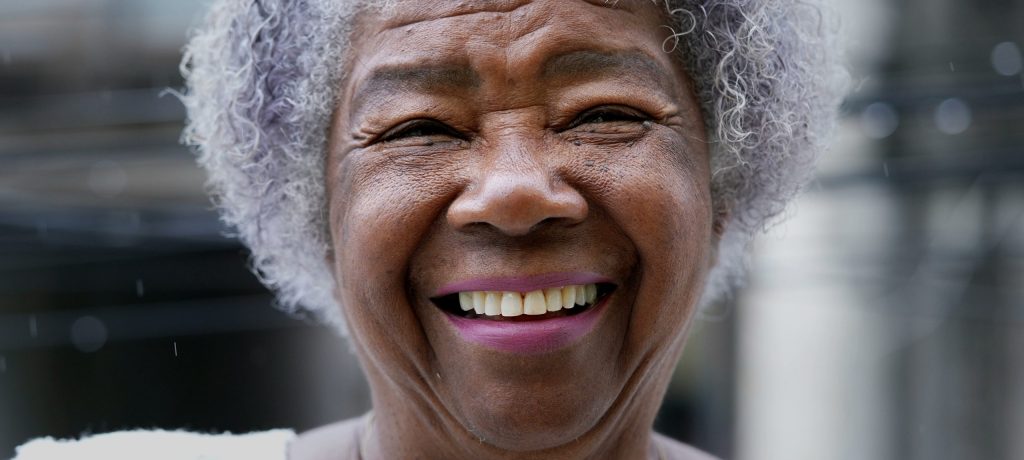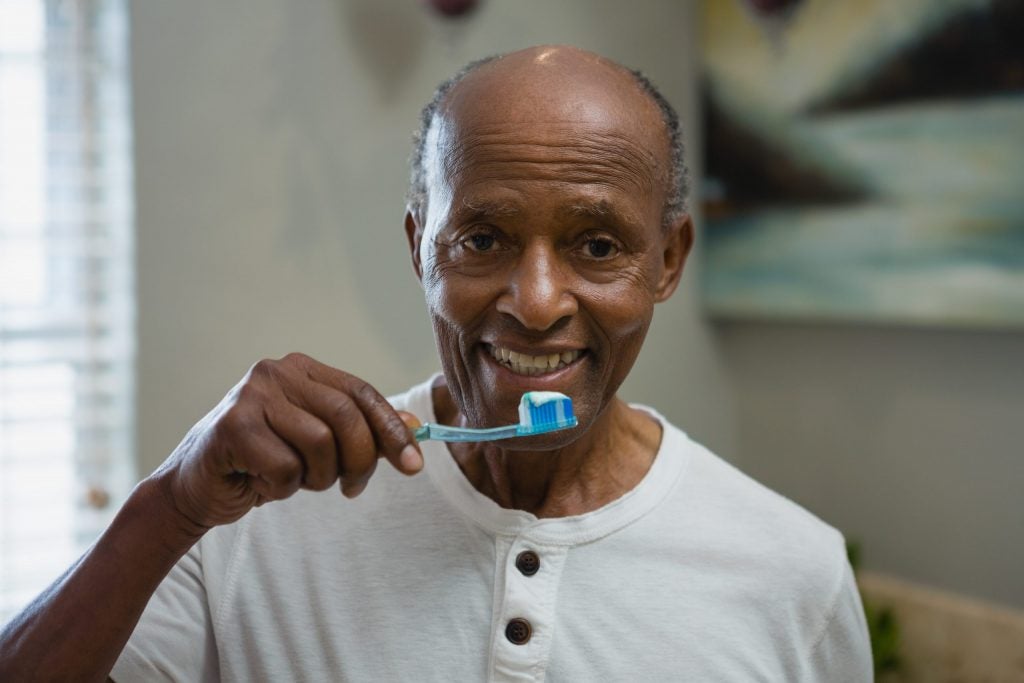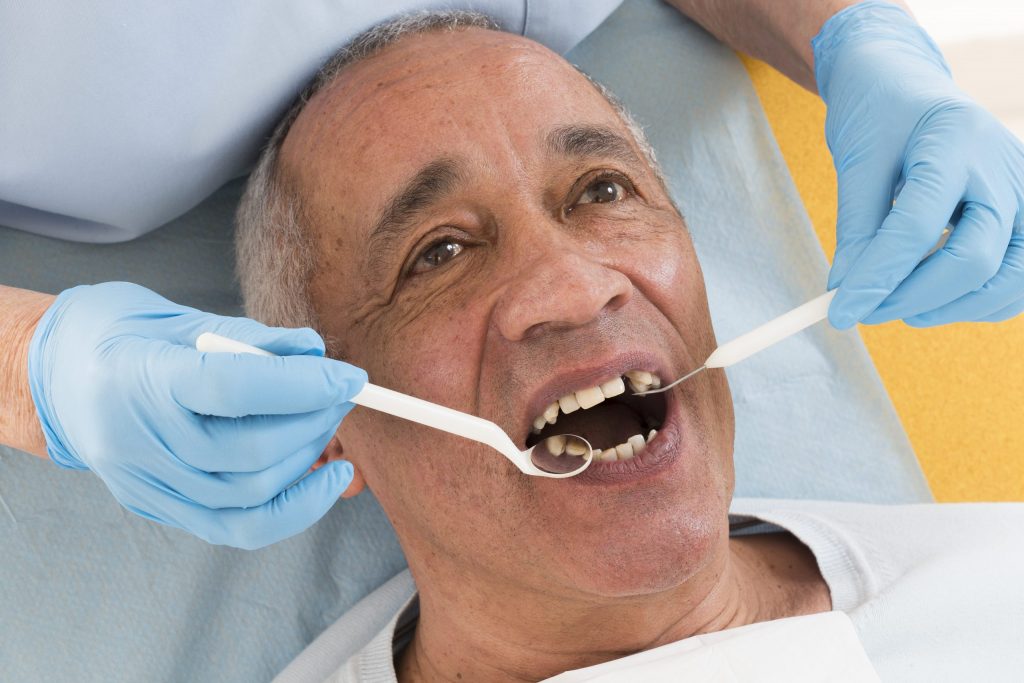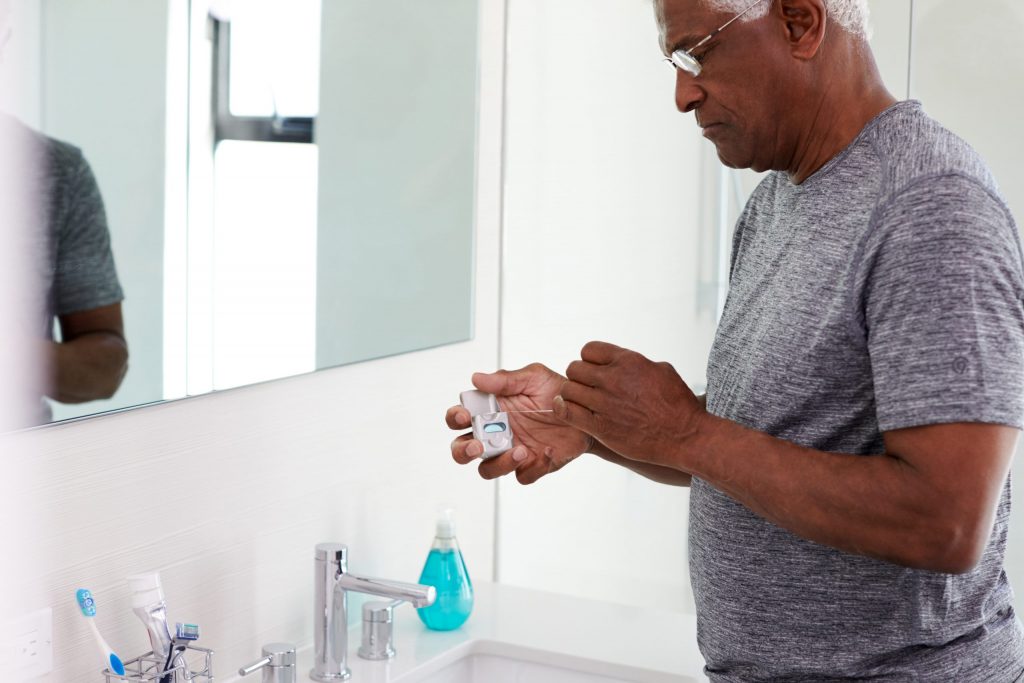Information Library
Start Reading

Many people accept dental issues like gum disease and tooth loss as an inevitable part of aging. The American College of Prosthodontics reports the majority of American adults are missing at least one tooth, and CDC data shows that 20% of adults over age 65 have lost all of their teeth.

Although prosthodontics like crowns and dentures can replace missing teeth, dentists would much rather see patients retain their own healthy, natural teeth. Unfortunately, there are often barriers to dental care for seniors. Penn Dental Medicine recognizes these obstacles and offers innovative solutions to preserve seniors’ smiles, and their health and well-being.
There’s no question that getting older affects every aspect of our bodies — and teeth are no exception. Just the wear and tear from a lifetime of chewing can affect the strength and appearance of teeth. Other issues are also often associated with aging.
Factors such as chronic diseases, taking medication, and dexterity challenges can increase the likelihood of oral health concerns.
Consider some of the most common ways that aging affects the teeth and gums:
Left untreated, any one of these issues can lead to serious health concerns. Tooth loss, for instance, can make eating and maintaining a healthy diet impossible. According to the ACP, tooth loss can be a factor in health concerns like malnutrition, obesity, diabetes, heart disease, and some types of cancer.
Although many of the effects of aging on oral health are considered inevitable, the Gerontological Society of America argues that this doesn’t have to be the case. Dental care for seniors should be centered on daily oral hygiene and regular professional care, including restorative dentistry (fillings, crowns, etc.) rather than extractions and replacements. Evidence even suggests that good oral health is associated with a longer lifespan.

For some individuals, that’s easier said than done. Limited dexterity, tooth sensitivity, dry mouth, and other issues can make a daily oral hygiene routine challenging for some. Dental professionals suggest several solutions to make daily care easier, including:
Given the importance of dental health to overall well-being and longevity, why wouldn’t taking care of one’s teeth be a priority for everyone? The answer is often complex.

One of the primary barriers to dental care for seniors is the cost. According to the CDC, many seniors lose their dental care insurance benefits when they retire, and the federal Medicare program does not cover routine dental care. For many on fixed incomes, dental costs — or a dental insurance plan — are too high to pay out-of-pocket.
The CDC also reports that seniors with disabilities — both cognitive and physical — as well as those who are homebound or living in long-term care facilities, are also at a higher risk of poor oral health. Many seniors cannot perform even basic oral hygiene tasks, or they cannot get to a dentist.
Penn Dental Medicine wants all Philadelphia seniors to have access to quality dental care. Besides providing affordable care, PDM providers tailored treatments to seniors’ unique needs and concerns. This includes scheduling more frequent visits — including telehealth options for homebound patients — customized fluoride treatments for improved tooth strength, and a focus on preventative care.
Penn Dental Medicine is also home to the Personalized Care Suite for Persons with Disabilities, a thoughtfully designed space that caters to the needs of patients with special needs. Our commitment to accessibility means that patients of all ages get the dental care they need to preserve their health.
If you have more questions about oral medicine, and how PDM can help when your dental health issues are affecting your overall well-being, download our free eBook, When a Toothache is the Least of Your Troubles: An Introduction to Oral Medicine, to learn more about this specialized type of care.